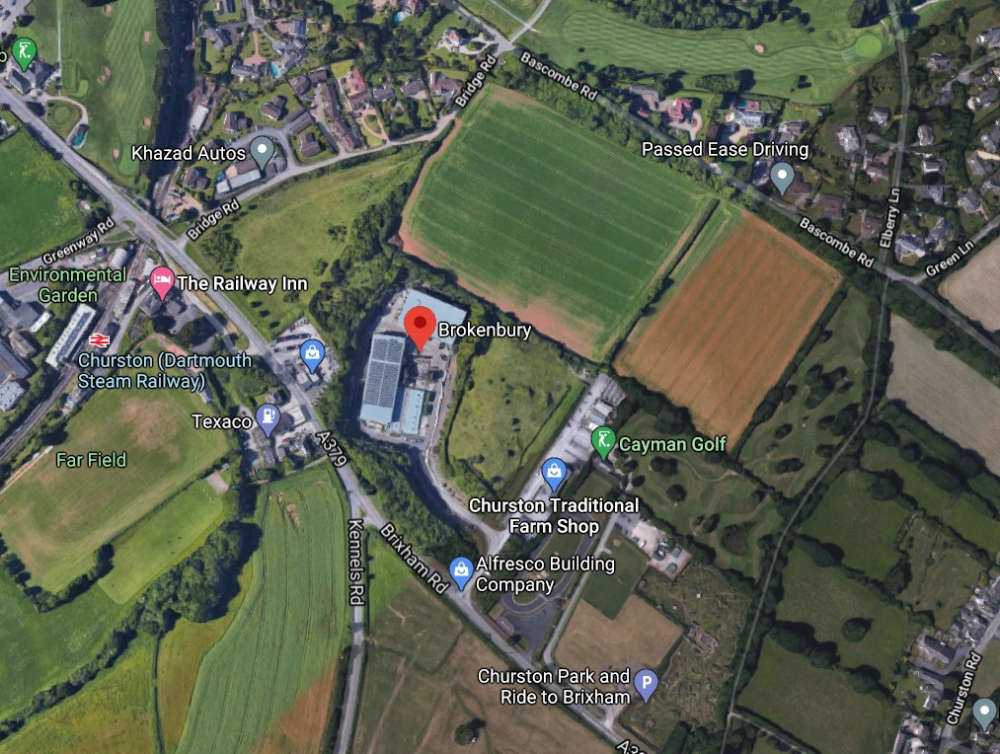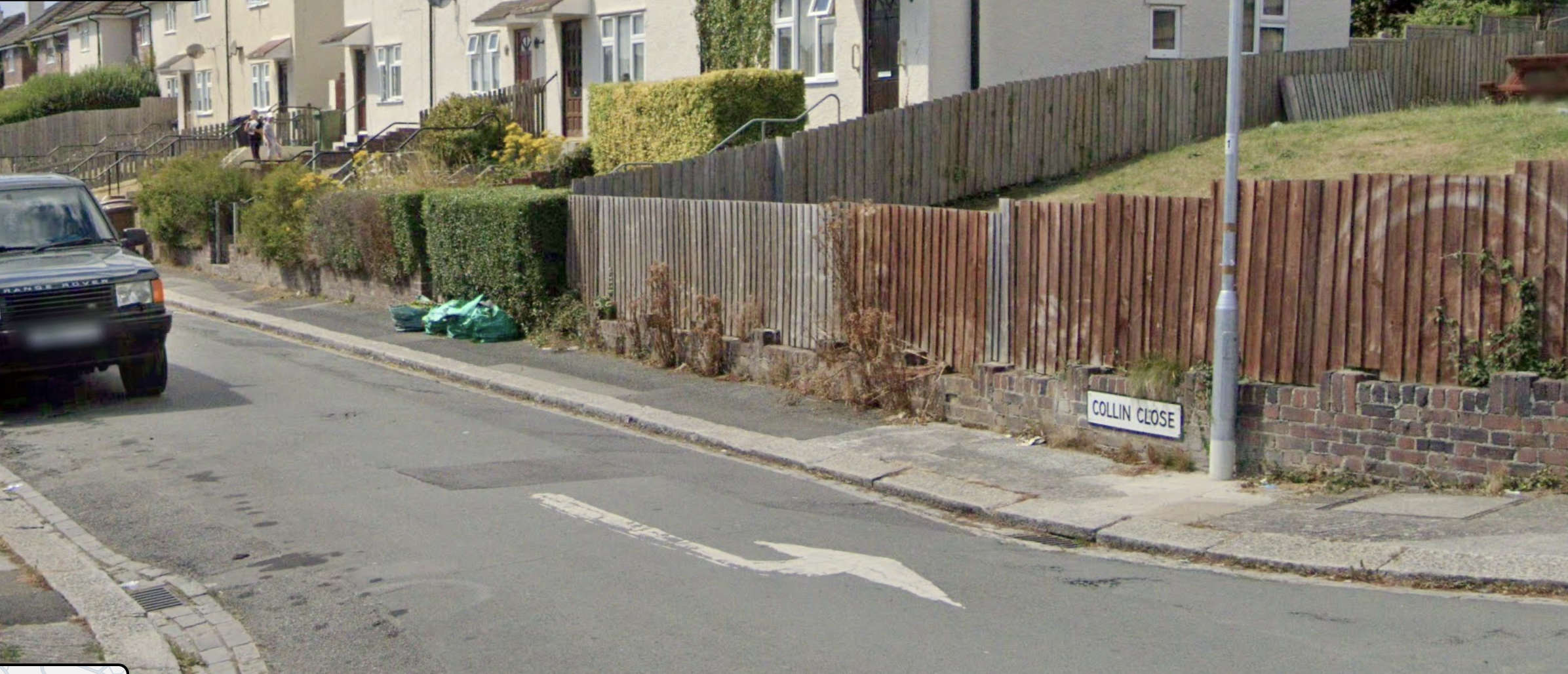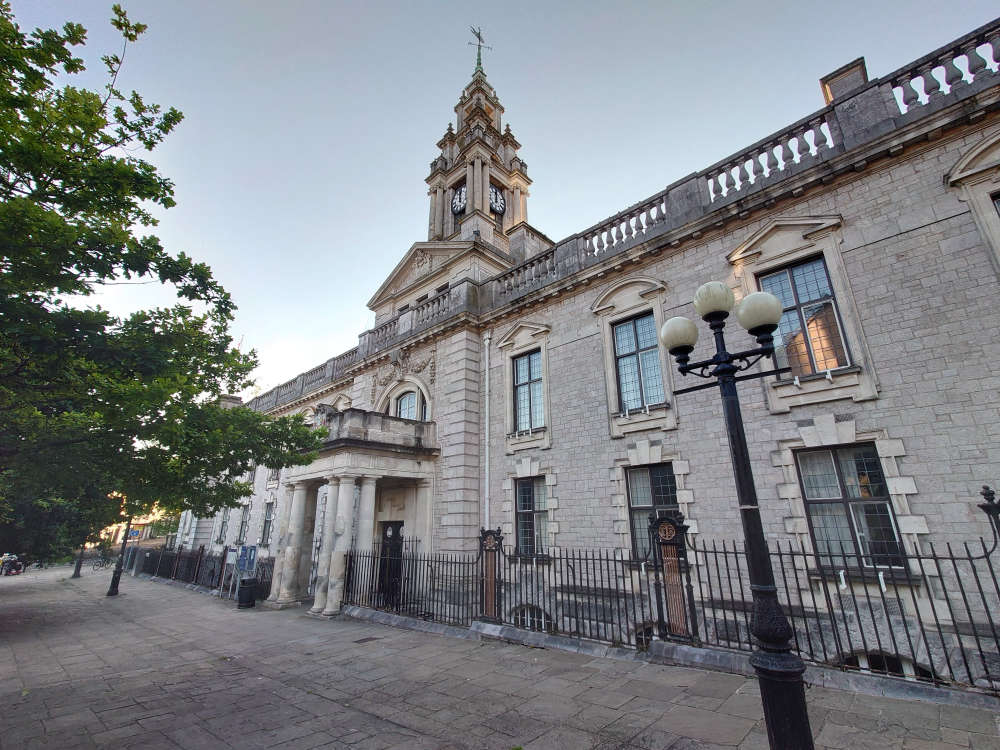
£17m plan unanimously approved
Exeter’s historic Royal Clarence Hotel, destroyed in a fire six years ago, will finally be restored and turned into luxury flats after councillors gave the go-ahead.
The city council’s planning committee unanimously approved the £17 million plans on Monday evening [10 October], which will involve restoring the front of the building to its “former glory” with 23 luxury apartments, a restaurant and a bar.
Construction work could start next summer and is expected to take around two years to complete.
The iconic Grade II listed building, which dates back to 1769 and overlooks Exeter Cathedral, was ravaged by the blaze in October 2016 that started in neighbouring buildings and spread to the hotel.
A previous plan to build a 74-bedroom hotel on the site by a former owner failed to materialise. It was then sold to Southwest Lifestyle Brands Ltd, a company run by former Plymouth Argyle owner James Brent, who called the hotel plan “unviable.”
The apartments – a mix of 2 and 3-beds – will be spread over five floors, including a new roof extension. A restaurant and pub, as part of the reconstructed Well House Tavern, will be on the ground floor, as well as a commercial food and drink unit.
Members of the committee were told the plan has been designed to “retain and showcase as many historical features of the remaining building fabric as possible.”
However, some parts of the remaining listed buildings around the site, including 6 Martin’s Lane, are “unsalvageable” after being exposed to the elements for a number of years, so will need to be demolished.
Recommending approval, Ian Collinson, Exeter’s director of city development, said the site was currently “an eyesore in what is otherwise a beautiful part of our city,” though admitted the scheme would “result in substantial harm to what remains of those listed buildings.”
But his planning team believed any downsides to the project will be outweighed by the public benefits of restoring the building and bringing it back to use – a sentiment shared by the committee.
Addressing members, Mr Brent said: “We clearly understand the emotional connection that the Royal Clarence building has with residents and visitors to the city and we’re very keen to see it return to its former glory to be enjoyed once more.”
When his company bought the site, he said a viability assessment was conducted on the previously agreed hotel scheme, explaining: “It was probably the most non-viable scheme I have come across.”
Mr Brent claimed the updated one is a “good scheme,” which brings the ground floor back into commercial use as well as providing “much-needed housing in the city centre in line with other residential developments in Cathedral Yard.”
Council leader Phil Bialyk (Labour, Exwick) accepted the luxury nature of the flats means they will not be within the reach of the “overwhelming majority of the people in Exeter,” but said: “I think we really need to see that site and that part of town put right, and from what I can see I think it will be put right.”
He added: “It’s going to be a great improvement [and] I think people want to see it improved.”
Fellow Labour councillor Rob Hannaford (St Thomas) said a lot people in Exeter will be “sad” that it’s not going to be brought back as a hotel, but believed a restaurant and bar on the ground floor will again allow it to be used for special occasions like it was before the fire.
He also reminded the committee that it was “never going to be as it was before” due to modern building regulations: “It would not look the same, it would not operate in the same way, because quite rightly, we wouldn’t be allowed to do it because of all the issues we understand.
“But I think in reality, this does offer a very strong way forward,” said Cllr Hannaford, who praised the plans to reinstall the façade as well as the look of some of the new windows.
He added: “We do have a very strong wish that we get more residential use back into the city centre. It’s more sustainable, more balanced communities, and that’s the way forward.”
Councillor Diana Moore (Green, St David’s) mentioned how the development will cause some substantial harm to the existing listed site but said: “When you consider what the alternative is, it would be worse because it would still be a derelict site and deteriorate further.
“So, I do feel it’s important that this application is supported and brought forward quickly.”
Chair of the planning committee, Councillor Emma Morse (Labour, Mincinglake and Whipton) said the current site is “definitely a scar that reminds us of that terrible weekend and we can’t carry on with our Cathedral Green looking like this.”
There was one objector at the meeting, who spoke on behalf of a neighbouring property owner. They criticised some detailed aspects of the plan, including privacy concerns, a right of way and the close proximity of one of the windows.
They were told the issues would be addressed either in the conditions for approval, subsequent building regulations, or simply were not in the remit of the planning committee.
The committee unanimously approved the application subject to a number of conditions, including a substantial contribution towards affordable housing – currently estimated at around £2 million – which will be confirmed at a later date.
A four month detailed design process will begin shortly, according to Mr Brent, followed by another viability check. The construction will then take just under 18 months to complete.
 Official challenge to Torbay solar farm project
Official challenge to Torbay solar farm project
 Two people injured in suspected Plymouth stabbing
Two people injured in suspected Plymouth stabbing
 Four councillors banned from council tax debates
Four councillors banned from council tax debates
 Video shows Devon biker causing horrific crash
Video shows Devon biker causing horrific crash
 Murder charge after Kingsbridge crash
Murder charge after Kingsbridge crash
